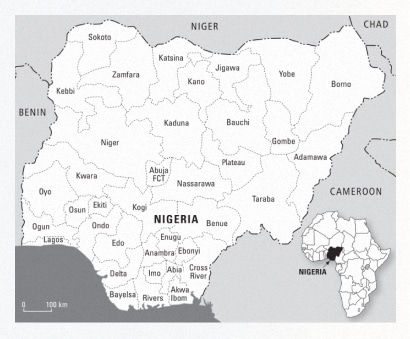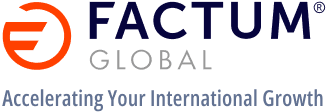Market Spotlight: Nigeria



-
Nigeria is ranked in the bottom third of the world on the World Bank Ease of Doing Business ranking (131 of 190), and ranks 17 of 48 African countries in the Index and has improved in recent years.
-
Nigeria has the largest economy in Africa with formal trade relations with the U.S., European Union, and China.
-
Located in Western Africa bordering the Gulf of Guinea, Nigeria has direct access to global trading partners from its ports (particularly from Lagos, a major trading city), making it an attractive place for foreign importers.
-
Both formal and informal sectors exist within the Nigerian economy, with the informal sector mostly excluded from GDP. The service sector (formal) has been the fastest-growing and largest sector in Nigeria and has become a tech hub in Africa.
-
In February 2023, Nigeria elected Bola Ahmed Tinubu, who will take office in May 2023 (though election results are being challenged by the opposition in court). His agenda seeks to lower corporate tax rates and improve infrastructure to attract greater FDI.

-
Nigeria has a combination of tariffs and quotas to generate national revenue and protect local industries from outside compeition.
-
The country has a common external tariff with five bands: 0% on capital goods and pharmaceuticals; 5% on raw materials; 10% on intermediate goods; 20% on finished goods; and 35% on imports in locally-competitive sectors.
-
Seeking to diversify its economy and its reliance on crude oil, Nigeria recently signed the African Continental Free Trade Agreement, and is part of bilateral investment agreements with 31 countries.

-
Nigeria is ranked 28 of 111 countries on the Education First English Proficiency Index marking a high proficiency score in English (and # 3 in Africa).
-
Nigeria is a linguistically-diverse nation with English as the official language. Other widely-spoken languages include Hausa, Yoruba, Igbo, and Fulfulde. Arabic is also spoken but typically reserved for recitations of Islamic prayer and worship.
-
Although English is the official language and widely used in business, conduct research on the local language used where you intend to conduct business. However, preparing business documents in English is typically sufficient.

-
Nigeria has a labor force participation rate of 58% (as of 2021), compared to the global average of 59%, according to the World Bank Report.
-
The country boasts an abundance of skilled and affordable labor, as compared to regional counterparts, and labor rates are well below high-income and many middle-income countries.
-
The minimum wage in Nigeria is 30,000 NGN/Month ($65 USD/Month) and an average wage of 42,300 NGN/Month ($91.89/Month).

-
Nigeria has a variety of cultures. The South has unique norms, languages, and religions as compared to the North. It is important to research the region where you will be conducting business so that you appreciate and respect the various cultural elements.
-
Business dress code is typically formal, suit attire. Be sure to use formal expressions (“sir” or “madam”) both verbally and in writing.
-
Business discussions are typically conducted through in-person meetings and punctuality is flexible. It is important to have business cards ready to exchange when first meeting your host.
-
Relationships are crucial in conducting business in Nigeria. It is important to maintain ongoing dialogues with counterparts regarding both business matters, as well as informal “check-ins.”

-
Nigeria’s economic freedom score is 53.9, making its economy the 124th freest out of 177 economies indexed. It’s economy is classified as “mostly unfree” and well below the world average, ranking 22 of 46 economies in Sub-Saharan Africa.
-
Nigeria continues to face severe problems with rising inflation, increasing food prices, high-unemployment, currency devaluation, and rising insecurity. In response, it has enacted several fiscal and macroeconomic policies to curb issues from the pandemic and most expect the economy will rebound in the coming months and years.
-
Nigeria is open to foreign investment and trade agreements with other countries and many hope that the newly elected President’s agenda will help accelerate growth. It’s economy is expected to grow by an average of 2.9% by 2025 with the President’s newly enacted policies.


